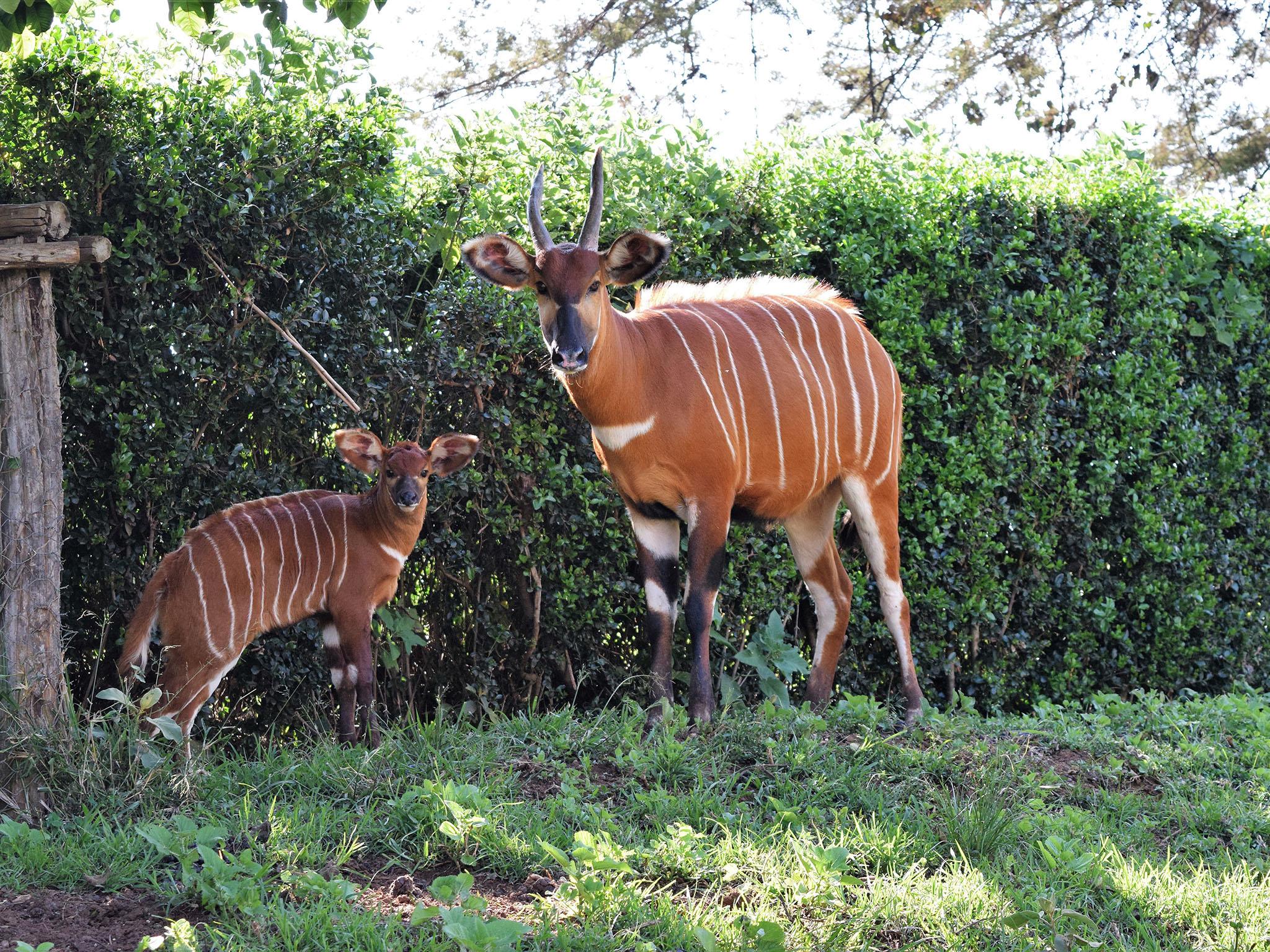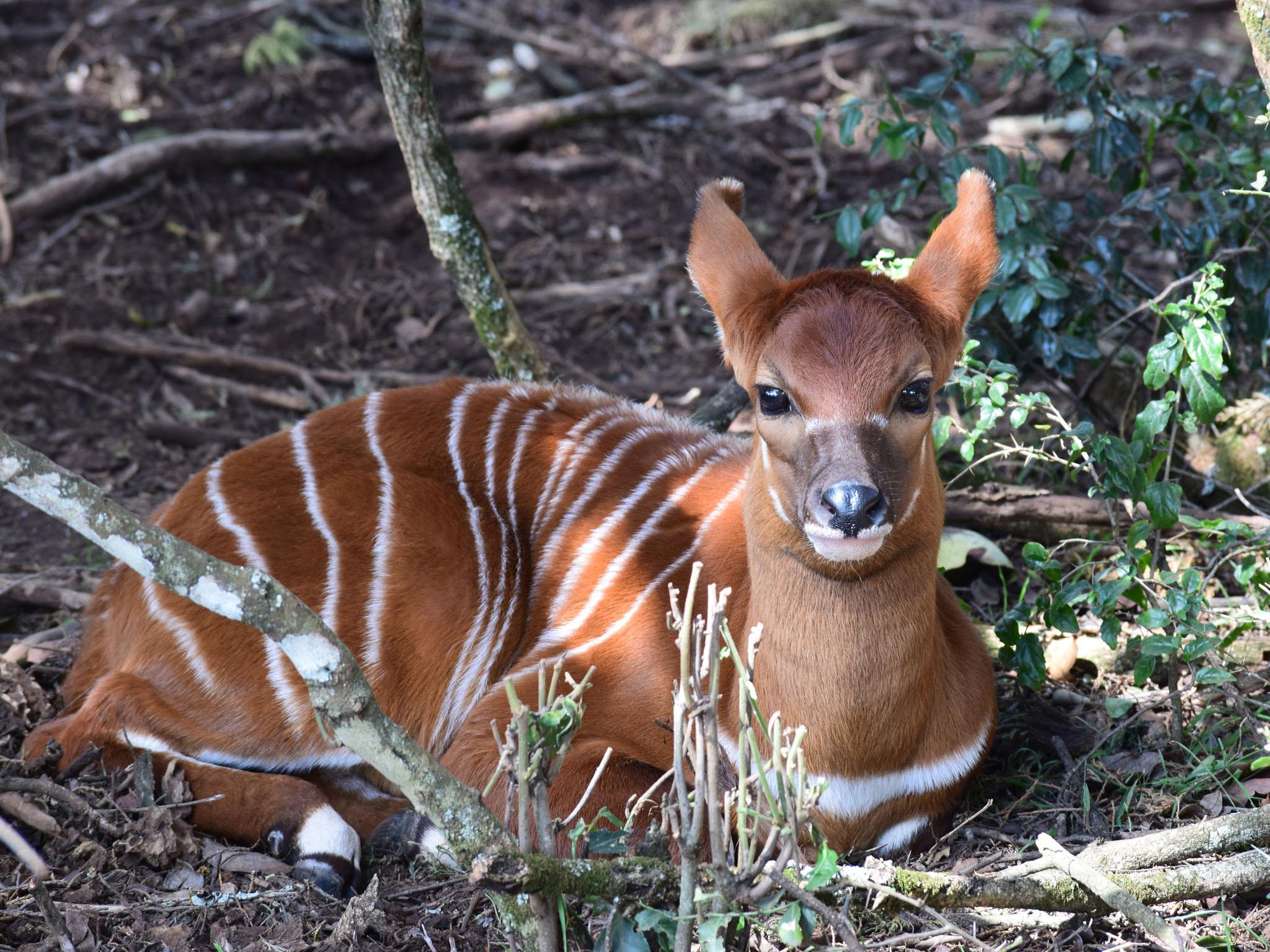Ignore the headlines about wildlife conservation – we don't need to resort to warzone tactics to protect endangered species
The only real, long-term solution to wildlife conservation and preservation is education

Your support helps us to tell the story
From reproductive rights to climate change to Big Tech, The Independent is on the ground when the story is developing. Whether it's investigating the financials of Elon Musk's pro-Trump PAC or producing our latest documentary, 'The A Word', which shines a light on the American women fighting for reproductive rights, we know how important it is to parse out the facts from the messaging.
At such a critical moment in US history, we need reporters on the ground. Your donation allows us to keep sending journalists to speak to both sides of the story.
The Independent is trusted by Americans across the entire political spectrum. And unlike many other quality news outlets, we choose not to lock Americans out of our reporting and analysis with paywalls. We believe quality journalism should be available to everyone, paid for by those who can afford it.
Your support makes all the difference.International interest in wildlife conservation in Africa seems to wax and wane in line with outraged or triumphant news headlines. Whether gnashing its teeth over Cecil the Lion's son, or cheering on last week's public destruction of two tonnes of ivory in Central Park, the international community is having all the wrong debates. Should we tackle poaching by targeting demand? Do we need more armed soldiers? But these do not need to be the only options when it comes to protecting endangered species.
Contrary to the recent increase in stories around militarisation of conservation, wildlife parks are not war zones and citizens should not have to be in a “battle” with animals to gain access to land. The word “engagement” is often thrown around like a panacea. But it really does work. For example, at the Mount Kenya Wildlife Conservancy (MKWC), the only conservancy in the world that protects the critically endangered Mountain Bongo, engagement with the local community is our priority.
With headlines typically reserved for Cecil the Lion, you would be forgiven for not having heard of the Mountain Bongo. This rare and beautiful creature is only found in its natural habitat in Kenya, and there are just 100 or so left in the wild. Over the last 50 years their population has been devastated by unrestricted hunting, poaching, loss of habitat, illegal logging, introduced predators and diseases such as rinderpest.
Today 72 Bongos live at the Mount Kenya Wildlife Conservancy (MKWC) in a semi wild environment. It is here that MKWC runs the only mountain bongo-breeding programme of its kind in the world.
Success has been largely the result of an education programme which now forms part of the local school curriculum. The only real, long-term solution to wildlife conservation and preservation is education. Children must be taught from an early age about the importance of conservation and, more broadly, nurture a positive mind set towards the environment. Those adults which have not had the opportunity to experience our positive education programme have been recruited as staff and volunteers, and now help in monitoring the Bongo’s movements across the forest areas.
Our biggest lesson is that the greatest responsibility for conservation lies with our citizens. That means partnering with government agencies such as the National Bongo Taskforce, the Kenya Wildlife Service and the Kenya Forestry Service to ensure all parties have a stake in the Bongo’s future. It is human activity that has interfered with natural habitats, so we must acknowledge our part in the devastation of entire animal species. As our population grows, the search for timber, food and fuel has severely damaged our once pristine environment. Maintaining a balance between human needs and a sanctuary for wildlife is a mammoth task.
Knowledge and education on a local level is paramount. Our Education Centre at Mount Kenya Wildlife Conservancy teaches Kenyan youth about conserving their wildlife and environment. Today the facility is visited by over 10,000 students annually. The centre also operates an outreach programme to assist local schools with improving their environmental education.

The people we assist with their education and livelihood, or those we take on as interns to work with wildlife are the ones who disseminate positive knowledge about the benefits of working with the environment and not against it. Many of them then move on to jobs in related fields after graduation. Their work at the conservancy creates a lasting respect for wildlife and the environment. Most remain our lifelong supporters.
In a country like Kenya, where almost half the population lives in poverty, the promise of quick money from poaching and logging can be difficult to resist. Why should anyone care about the future of the Bongo, or indeed any other animal, if they are struggling to feed their own children? The long-term benefits of protecting our environment, which far outweigh the immediate gain from illicit activities, are hard to see.
But our work is slowly paying off. We are seeing steady progress in raising the population of the Mountain Bongo. In the last month, we were lucky enough to witness the successful birth of two healthy Bongo calves. Of course more work is needed, but we are confident we are on the right path.
A military solution to an environmental problem is not the way forward. If anything, it only serves to turn communities against our work. People must be given the opportunity to learn to love and respect their environment. In a recent interview, Vince Barkas, the head of Africa’s largest privately owned anti-poaching unit said, “Working with communities and the actual poachers has saved more wildlife than any guard with a gun in the bush.” We believe in this method, and have the results to show for it.
Donald is the Conservancy Manager at the Mount Kenya Wildlife Conservancy
Join our commenting forum
Join thought-provoking conversations, follow other Independent readers and see their replies
Comments